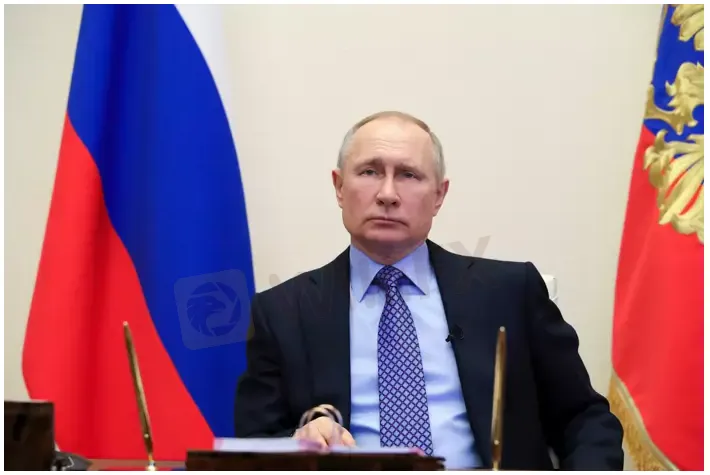简体中文
繁體中文
English
Pусский
日本語
ภาษาไทย
Tiếng Việt
Bahasa Indonesia
Español
हिन्दी
Filippiiniläinen
Français
Deutsch
Português
Türkçe
한국어
العربية
Russia to Ease Crypto Asset Taxes as Sanctions Bite Deeper
Abstract:The Russian government is adjusting its digital asset tax rates in an effort to encourage more adoption as avenues of traditional finance are being increasingly blocked off.

A proposed draft law will drop VAT for local crypto companies by 35%.
Russia is trying to encourage more crypto adoption in the face of financial sanctions.
Crypto markets have shed 46% since the war in Ukraine began.
Russia is increasingly turning to digital assets as Western-imposed sanctions, and financial restrictions continue to erode its ability to transact with other nations.
On June 28, Russian lawmakers approved draft legislation that would potentially exempt issuers of crypto assets from value-added tax (VAT). Currently, the tax rate for companies conducting digital asset transactions is 20%.
Under the new rate, this will be dropped to 13% for Russian exchanges on the first 5 million rubles (around $US94,000) annually. Foreign exchanges and crypto asset companies will be subject to 15% VAT, according to local media.
Russia Opening to Crypto
The Russian central bank, like most others around the world, has taken a harsh stance against cryptocurrencies. In February, financial regulators issued the first digital assets license for local platform Atomyze Russia, and one for leading lender Sberbank followed.
In addition to the tax cuts for issuers, the draft law approved by State Duma members also establishes tax rates on income earned from the sale of crypto assets. However, the legislation must still be reviewed by the upper house and signed by President Vladimir Putin to become law.
The law, if passed, will establish specifics regarding digital asset operations and what the government calls utilitarian digital rights (UTR), which it considers similar to securities.
The move comes as financial restrictions continue to hamper the country‘s ability to transact globally in the wake of Vladimir Putin’s invasion of Ukraine. Most major Russian banks have been blocked from the international payments channel, SWIFT.
Anti-crypto U.S. politicians used the premise that Russia would pivot to crypto to evade sanctions in an effort to further crack down on them, but it simply hasnt happened yet.
Russias financial woes are worsening as this week, it defaulted on its foreign debt for the first time since the Bolshevik revolution, also known as the October Revolution in 1917. Russia failed to pay interest on two bonds during a 30-day grace period that expired on June 26.

Disclaimer:
The views in this article only represent the author's personal views, and do not constitute investment advice on this platform. This platform does not guarantee the accuracy, completeness and timeliness of the information in the article, and will not be liable for any loss caused by the use of or reliance on the information in the article.
Read more

Big News! UK 30-Year Bond Yields Soar to 25-Year High!
Following the successful auction of 30-year government bonds by the UK, the yield on 30-year bonds surged, reaching its highest level in 25 years. This increase reflects growing concerns in the market over the government's fiscal policies and large-scale debt issuance.

Beware of Fraudulent Letters: Malaysia’s Securities Commission Issues Warning
The Securities Commission Malaysia (SC) has raised an alarm over fraudulent letters and emails falsely claiming to be from the regulatory body. These fake communications are allegedly tied to illicit investment schemes that seek payments from unsuspecting investors.

Singapore’s New Law Allows Police to Freeze Scam Victims’ Bank Accounts
Singapore has enacted a new law enabling police to freeze bank accounts of scam victims as a last-resort measure to prevent financial losses.

Rising U.S. Corporate Bankruptcies Deepen Economic Concerns
In 2024, 686 U.S. companies filed for bankruptcy, marking the highest number since 2010.
WikiFX Broker
Latest News
Pepperstone Sponsored the "Aston Martin Aramco Formula One Team"
ACY Securities Integrates MetaTrader 5 to Enhnace Copy Trading Service
Soegee Futures Review: Should You Trust This Broker?
Malaysian Pilot Loses RM1.36 Million in UVKXE Investment App Scam
Indonesia officially joins the BRICS countries
Attention! Goldman Sachs Cuts Gold Target to $2910
Inflation Rebounds: ECB's Big Rate Cut Now Unlikely
Carney \considering\ entering race to replace Canada\s Trudeau
High-Potential Investments: Top 10 Stocks to Watch in 2025
US Dollar Insights: Key FX Trends You Need to Know
Currency Calculator






